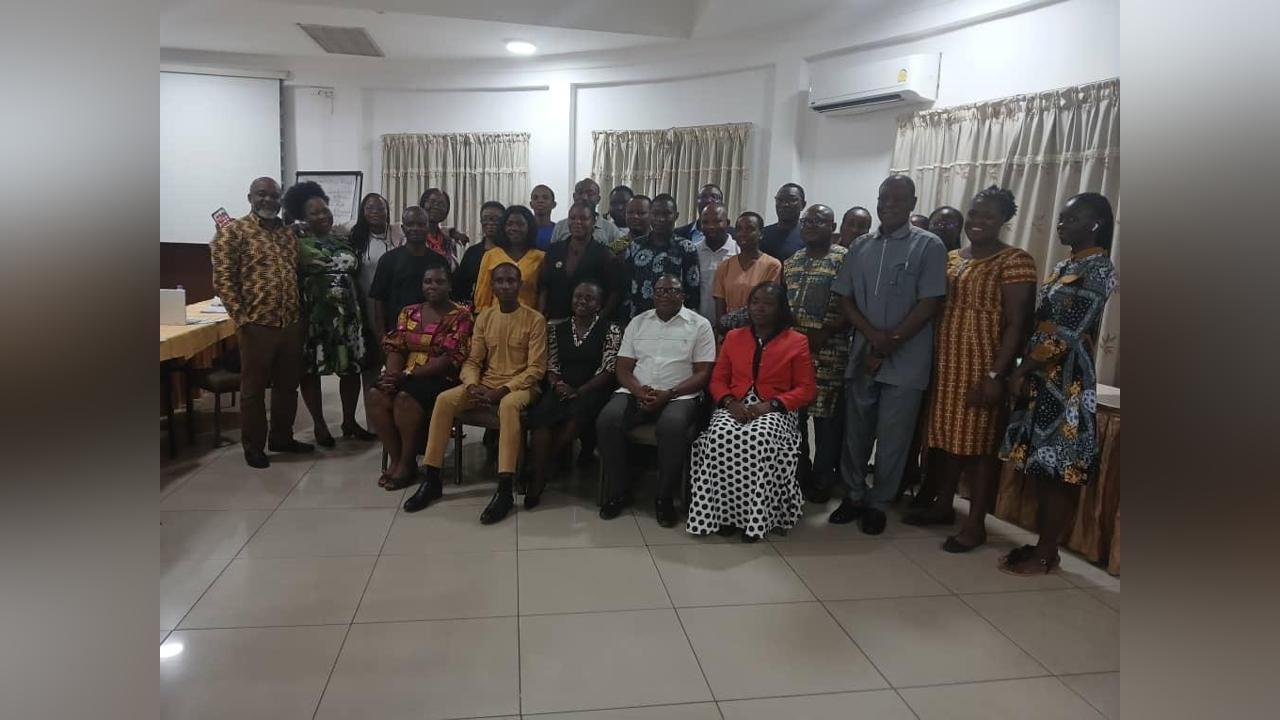
Africa-Press – Ghana. Ms Olivia Ziem Tizaayel, a Child Protection Specialist, Right To Play Ghana, has called on traditional authorities to ensure strict enforcement of their byelaws against parents who subject children to varied forms of child labour.
Child labour, she said was any form of activity that had a physical or long term effect on a child or denied a child access to education or development.
She made the call at a national stakeholder engagement in Accra, as part of efforts to combat child labour in cocoa growing and fishing communities through strengthened collaboration.
Ms Tizaayel said under no circumstances should a child be made to work either on the farm or canoe, or in any other form, while school was in session or in a manner that could affect the child health or development.
“When it comes to traditional authorities, we expect that they use their mandates as community influencers to control this activity. We expect that they institute very strict sanctions that are applied properly.
“There shouldn’t be any consideration when someone is caught promoting child labour, that this is my family member or this is my friend,” she added.
The Child Protection Specialist said fightinh child labour was everyone’s responsibility, and entreated neighbours to report their fellows who subject their children to child labour to
Community Child Protection Committees, the Department of Social Welfare or the police for the children to be rescued.
MsvTizaayel, speaking on the NGO’s current two projects, “For My Life, My Rights” and “My Rights, My Future,” said they aimed to strengthen protective environments in areas where children were frequently engaged in cocoa supply chains and fishing activities.
“While children are supposed to be in school, they are found on farms working or on water fishing.
“This project ensures that whilst we are teaching our children basic life skills, parents and caregivers do not subject these children to any form of child labour that deprives them of their education and rights,” she emphasized.
Some targeted communities, she said lacked schools, forcing children to trek long distances to access education.
The projects would therefore focus on improving access to quality education alongside strengthening protection mechanisms, she explained.
“We have set up community structures including PTAs, SMCs, and community child protection committees linked to district structures. These people support us to build capacity of parents, create awareness, and ensure parental involvement in the project,” she added.
Mr Evans Sirikari, the Acting Country Director of Right To Play, said the organisation was working closely with the European Commission and local partners to eliminate child labour through a coordinated approach.
He said there was an inadequate coordination among stakeholders as a major challenge after seven months of implementation, attributing it to the working in isolation among some organisations and government agencies.
“We think that gaps should be filled where we have a coordinated effort for all actors to come to the same table to discuss and agree on a common agenda. Once we have a common agenda, people can still pursue their specific activities while feeding into a proper national agenda,” he stated.
Mr Sirikari explained that Right To Play has established child protection committees at community level and school-based clubs where children learn about their rights and responsibilities through peer education.
“At the family level, we are looking to see children becoming more resilient and stronger to reach their full potential. At the community level, we expect chiefs to participate and support this programme, and above all, we want to see a strengthened national child protection system,” he added
The three-year initiative seeks to create sustainable structures that will continue functioning after the project ends, with government agencies taking ownership of the established mechanisms to ensure long-term protection for vulnerable children, he noted.
The engagement brought together key national stakeholders from the Ministry of Labour and Employment, The Ghana Education Service, Ministry of Gender, Children and Social Protection and The Ministry of Education for deliberation.
For close to 25 years, Right To Play has worked with local partners in Ghana to deliver high-quality education, girls’ empowerment, and health and well-being programs.
For More News And Analysis About Ghana Follow Africa-Press






